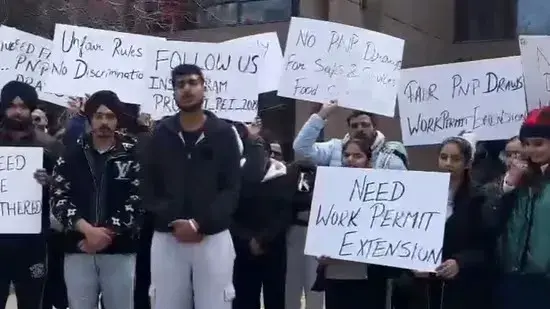Protests Erupt Across Indonesia as Parliament Delays Election Law Changes
Mass protests have swept across Indonesia after the parliament postponed ratifying controversial changes to the country’s election law. The proposed revisions have sparked outrage, with many accusing the government of trying to consolidate political power for outgoing President Joko Widodo (Jokowi). The parliamentary session to pass the amendments was delayed on Thursday due to insufficient attendance, leading to a standoff outside the legislature in Jakarta, where protesters attempted to breach the gates. Demonstrations also took place in multiple cities across Java, with some turning violent as authorities responded with tear gas. The proposed changes would overturn a recent constitutional court ruling that blocked a vocal government critic from running for the Jakarta governor position. Additionally, the revisions could allow Jokowi’s youngest son to participate in upcoming elections in Java this November, raising concerns about political dynasties. President Widodo has downplayed the unrest, framing the situation as a normal part of Indonesia’s democratic system and checks and balances. However, legal experts have warned that the dispute between the judiciary and parliament could lead to a constitutional crisis. Analyst Titi Anggraini described the situation as “constitutional insubordination.” In Jakarta and other cities, demonstrators carried signs and banners criticizing Jokowi, accusing him of undermining democracy. Many protesters, including members of the Ummat Party, expressed concerns that the government’s actions represent a move towards authoritarianism. The situation remains tense, with parliament yet to decide whether it will reconvene before the regional election registration opens next week. Protesters have vowed to continue their demonstrations until their concerns are addressed.
Protests Erupt Across Indonesia as Parliament Delays Election Law Changes Read More »



